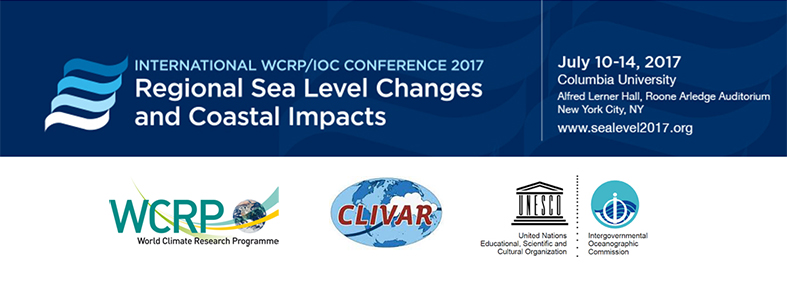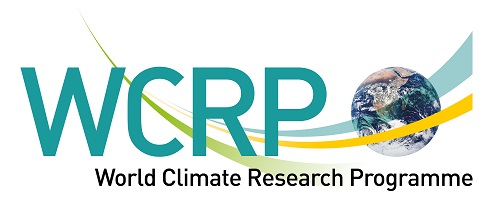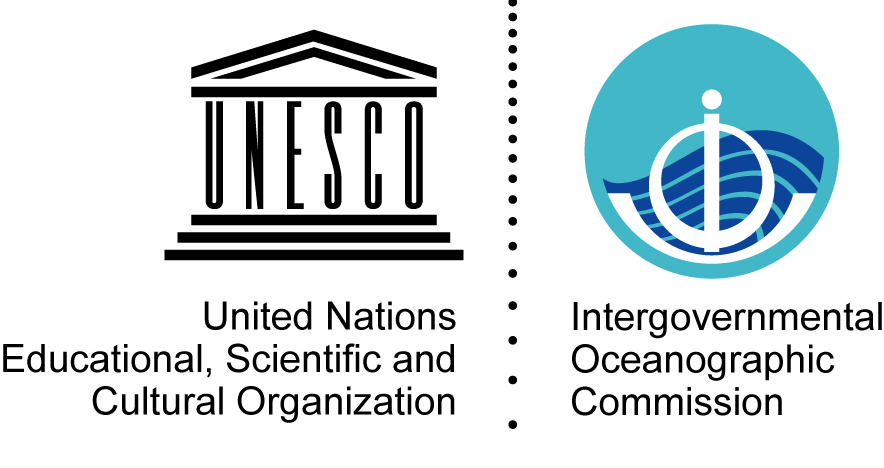2017 WCRP/IOC Sea Level Conference

Download
1. Conference Report
2. WCRP/IOC Sea Level Conference Statement 2017
3. CLIVAR Exchanges/US CLIVAR Variations: A joint special issue on Sea Level Rise
4. Daily programme and presentations
5. Conference Handbook
6. Abstract Book
7. Conference Flyer
Sea level change is already impacting coastal communities globally and will continue to do so. To meet urgent societal needs for useful information on sea level, the World Climate Research Program (WCRP) has established the theme “Regional Sea-Level Change and Coastal Impacts”, as one of its cross-cutting “Grand Challenge” (GC) science questions.
The GC Sea Level has designed and developed an integrated interdisciplinary program on sea level research reaching from the global to the regional and coastal scales. In particular, the program aims for close interaction with relevant coastal stakeholders to make sure that the results effectively support impact and adaptation efforts and wider coastal zone development and management.
The WCRP, jointly with the Intergovernmental Oceanographic Commission of UNESCO (IOC), is organizing an international conference on sea level research that will address the existing challenges in describing and predicting regional sea level changes, and in quantifying the intrinsic uncertainties. It follows 11 years after the first WCRP sea level conference (Paris, 2006), and three years after the last Assessment Report of the Intergovernmental Panel on Climate Change (IPCC). It will provide a comprehensive summary of the state of worldwide climate-related large scale sea level research.
The conference is a 5-day event with a leading theme guiding the activities of each day. The structure of the conference will consist of plenary sessions followed by extensive poster sessions. In the evenings we are planning to hold "think-tanks" focusing on new science frontiers and activities.
CONFERENCE SESSIONS
1. Paleo sea-level data and GIA modelling
The session examines long-term sea-level variations and their implications for past climate change. Results emerging from paleo observations and models will be discussed. This includes paleo sea-level reconstructions, and recent improvements of glacial isostatic adjustment (GIA) models and their applications including data uncertainty.
2. Millennial-scale ice sheet and sea-level interactions
The session will promote an integral approach to paleo-time scale sea-level change with a specific focus on millennial-scale ice sheet modelling and the coupling between ice dynamics, sea level changes and the solid Earth. Traditionally millennial-scale ice sheet and sea level changes have been studied independent from each other, using one as an input to the other. Here the dynamic feedback between ice dynamics, sea-level and solid Earth will be the focus
3. Contemporary contributions from ice sheets and glaciers
The session discusses ice sheets and glaciers, and their contribution to contemporary sea-level change over the last 50 years. Topics covered are mass balance driven changes, atmospheric and ocean driven changes, but also dynamically driven changes of the cryospheric and the interaction between mass balance and dynamics. Results from modelling and observational studies will be presented.
4. Contemporary sea-level change
This session focuses on ongoing sea-level variability on timescales of months to centuries, at the local, regional and global levels. Topics of interest include mass and steric budgets and respective uncertainties, differences between coastal and large-scale variability, effects of climate modes and internal variability in general, and attribution of regional change to natural and anthropogenic radiative forcing agents. Model and data analyses addressing causal mechanisms of regional sea-level variability will be considered.
5. Coastal zone
Sea-level science requirements of coastal management and planning will be discussed. The session considers multiple perspectives including mean sea level changes, including subsidence (a non-climate component of relative sea-level rise), extreme sea levels and waves, and how they are applied to impact and adaptation assessments and wider management. Future needs and opportunities will be a particular focus, including an expert panel.
6. Projections
Projections of sea-level change and its individual components will be presented such as from ocean density and circulation change and land ice and changes in terrestrial water storage. Time scales covered range from decadal to millennial time scales, including studies of the sea-level commitment to long-terms. The session addresses projections of global and regional sea-level change, but will also address changes in the distribution of sea-level extremes.
CONFERENCE OUTCOME
The conference will serve as a basis for a new assessment of the state-of-the-art on regional sea level research that will be an important input to the next IPCC assessment.
A major outcome from the conference will therefore be an evaluation of the current state of sea level science, an outline of future research requirements for improving our understanding of sea level rise and variability and a description of the observational requirements (both experimental and sustained systematic observations).
In detail the conference will:
- Identify the key factors contributing to past, present and future regional sea level rise and variability.
- Organize a systematic attack on the error budget of these factors.
- Identify stakeholder needs for sea-level information for coastal planning and management purposes.
- Define the requirements for new and augmented research, technical development and observations consistent with the above.
- The outcomes will be published in multiple forms, including an agenda setting peer-reviewed paper specifying the information on coastal seal level change required by coastal communities for adaptation and decision making purposes.
USEFUL INFORMATION
1. WCRP/IOC Sea Level Conference Statement 2017
The WCRP/IOC Sea Level Conference Statement was prepared by conference hosts and chairs, based on input from the broad community during the Sea Level 2017 conference. It has been adopted and signed by over 270 members of the scientific community. The final statement, with a list of signatories, can be found here.
2. Daily Conference Highlight
DAY 1 Conference Highlights
Scientists begin conference on sea level change, starting with the past and working towards the future The significance of rising waters in New York City was evident during Hurricane Sandy and on 10 July 2017 when hundreds of scientists gathered at Columbia University to kick-off a week long Regional Sea Level Changes and Coastal Impacts Conference. Read More...
DAY 2 Conference Highlights
The second day of the conference was dedicated to presentations on contemporary sea level change, ranging from the role of ocean heat content to satellite missions to drivers in variability of extreme sea levels. The two plenary sessions were accompanied by a morning and afternoon poster session and a town hall on the operational monitoring of sea level using satellites. Read More...
DAY 3 Conference Highlights
Halfway through the conference, day three brought a series of presentations on the coastal zone. Presenters in the two plenary sessions discussed impacts of rising seas from small island countries to large metropolitan cities like Shanghai, planning and adaptation strategies, and information needs for stakeholders and decision makers. Almost 70 posters were also presented on this theme. A panel closed out the day with discussions about New York’s adaptation strategies and response to Hurricane Sandy. Read More...
DAY 4 Conference Highlights
The conference rolled into the fourth day wrapping up the contemporary sea level presentations and beginning to address future projections. The two plenary sessions had corresponding posters for each topic. Participants also heard about the evolving requirements of integrated sea level observations for regional and local decision making during the town hall. Katy Hill, scientific officer for the Global Climate Observing System and Global Ocean Observing System, framed the town hall by wanting to know how we get the global ocean system humming to meet our decision making needs, particularly the requirements for moving into the coastal regions. Read More...
DAY 5 Conference Highlights
On the fifth day, conference participants — filled with four days of fascinating, relevant, and timely discussions — were able to hear about the latest modeling efforts and different scenarios for the future. A panel of stakeholders also held a lively discussion on what they learned during the week and what their recommendations are for collaborative opportunities and research to support coastal management. Read more...
3. Programmes (Daily Programme & Presentation)

4. Posters
| Tuesday | Wednesday | Thursday | |
| 11:00-12:30 | |||
| 16:00 -17:30 |
5. Town Halls
Tuesday, July 11
Town Hall 1: Operational monitoring of global and regional sea level by satellite altimetry
Over the last 26 years, sea level has been measured by a host of satellite mission, launched and operated by the various space agencies world wide. Together they clearly identify not only the approximately 3 mm/year rise in global mean sea level, but also the regional deviations from the global mean. The monitoring has mainly relied on the reference altimeter missions (TOPEX and the Jason family of satellites), but recent efforts like ESA's Sea Level Climate Change Initiative have brought other missions to meet the same high standards required for sea level change monitoring. In addition, fiducial measurement campaigns have been set up to cross-calibrate the satellite systems with in-situ tide gauges. In this session the various space agencies will present their involvement and commitment to ensure the continuation of the sea level climate data record from satellite altimetry into the future and the upkeep of the older data with improved knowledge of altimeter data corrections, orbit determination, etc. The moderator and speakers invite the conference participants to share their expectations and possible needs for improvement of current and future services and products delivered by the agencies.
Moderator: John Church, University of New South Wales (UNSW) Climate Change Research Center, Sydney, Australia.
Presenters:
- Eric Leuliette, National Oceanic and Atmospheric Administration (NOAA), College Park, Maryland, USA.
- Carmen Boening from National Aeronautic and Space Administration Jet Propulsion Laboratory (NASA/JPL), Pasadena, California, USA.
- Jérôme Benveniste, European Space Agency (ESA), Frascati, Italy.
- Remko Scharroo, European Organisation for the Exploitation of Meteorological Satellites (EUMETSAT), Darmstadt, Germany.
- Anny Cazenave, Centre Nationale d'Études Spatiales (CNES), Toulouse, France.
Thursday, July 13
Town Hall 2: Meeting evolving requirements of integrated sea level observations for regional and local decision making
The 2006 Sea Level Conference provided a comprehensive statement on requirements for Sea Level information and recommendations on sustaining satellite and in situ observations and developing observing system capabilities.
Over 10 years on, the need for information at the regional and local level is more critical, and more complex, requiring for instance the synthesis of Sea Level information with the likelihood of extreme weather events. As technology and analysis methods evolve, how do we extract maximum benefit from the combination of satellite and in situ observing systems? Can we improve the integration of Sea Level, geodetic and hydro-meteorological data to deliver information fit for meeting regional/local decision-making requirements?
Lead:
- Katy Hill, Ocean Observations (GCOS-GOOS-JCOMM), c/o World Meteorological Organisation
Speakers:
- Gary Mitchum (University of South Florida) Emerging requirements for sustained observations of sea level.
- Melisa Menendez (Universidad de Cantabria), Advances in Satellite and In situ technologies to meet requirements.
- Billy Sweet (NOAA) Products for today’s planning decision making on seasonal to multi-decadal timescales
6. Committees
| SCIENCE ORGANIZING COMMITTEE | LOCAL ORGANIZING COMMITTEE |
|
Co-Chairs
Members
|
Chair
Members
|
7. Sponsors
CONFERENCE ORGANIZERS
 |
 |
| World Climate Research Programme | Intergovernmental Oceanographic Commission of UNESCO |
CONFERENCE HOST
 |
| The Earth Institute of Columbia University |
PLATINUM SPONSORS
- European Space Agency
- National Aeronautical and Space Administration
- National Oceanic and Atmospheric Administration
- World Climate Research Programme
GOLD SPONSORS
SILVER SPONSORS
BRONZE SPONSORS
- Center for Earth System Research and Sustainability (CEN)
- Future Earth Coasts
- Institute for Marine and Atmospheric Research (IMAU)
- Institut Pierre Simon Laplace
- Royal Netherlands Institute for Sea Research
- Netherlands Earth System Science Centre
- Royal Netherlands Meteorological Institute (KNMI)
- Technical University Delft Climate Institute
- Scientific Committee on Ocean Research
- University of Southampton
- Utrecht University











Add new comment